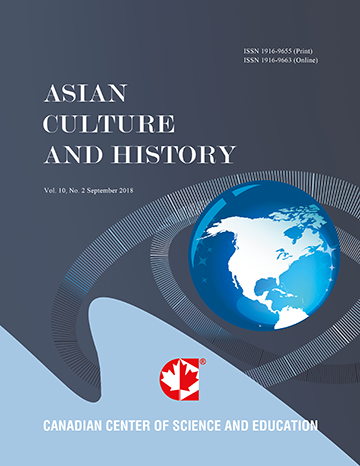Literary Representation of the Relationship between Man and Nature in Guo Muoruo’s Poetry Anthology The Goddess
- Chunyan Zhang
Abstract
One of the distinct characteristics of Chinese culture has always been its emphasis on the harmony of man with nature (tianren heyi天人合一). This is still widely accepted in Chinese intellectual discourse. However, few scholars have noticed that a new attitude towards the relationship between human beings and nature, which emphasizes the “greatness” of man and the battle against nature, began to germinate in the 1920s. In Chinese culture, the earliest and most impressive manifestation of this attitude was in Chinese literature. The literary revolution foreshadowed the overall intellectual movement of the “New Culture”. Guo Moruo’s (郭沫若1892-1978) poetry anthology The Goddess (Nüshen女神) (1921) was a representative example. It constructed the “greatness” of man and the myth of “man battling against nature” effectively by elevating the status of man in nature. This paper discusses how Guo Muoruo’s ideas related to the social ideologies of the time (e.g. nationalism, Westernization, Romanticism, Expressionism, Marxism and leftist politics). Guo is a case study, demonstrating how social and political change influenced Chinese artistic expression in the 1920s and the 1930s.
- Full Text:
 PDF
PDF
- DOI:10.5539/ach.v8n1p126
Journal Metrics
Google-based Impact Factor (2017): 5.42
h-index (January 2018): 11
i10-index (January 2018): 21
h5-index (January 2018): 6
h5-median (January 2018): 9
Index
- Academic Journals Database
- CNKI Scholar
- COPAC
- EconPapers
- Elektronische Zeitschriftenbibliothek (EZB)
- Excellence in Research for Australia (ERA)
- Genamics JournalSeek
- Google Scholar
- Infotrieve
- LOCKSS
- MIAR
- NewJour
- Open J-Gate
- PKP Open Archives Harvester
- Publons
- RePEc
- Scilit
- SHERPA/RoMEO
- Standard Periodical Directory
- Technische Informationsbibliothek (TIB)
- The Keepers Registry
- Universe Digital Library
- WorldCat
Contact
- Ivan YongEditorial Assistant
- ach@ccsenet.org
